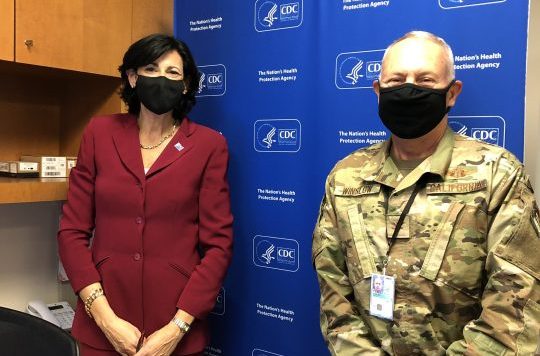The director of the CDC, Rochelle Walensky, will be stepping down at the end of the month.
A day after President Joe Biden was sworn in, the official began his or her new job. He or she had a significant role in the administration’s response to COVID, which included widespread vaccination campaigns and the contentious mandate that all federal employees acquire the vaccine. Formerly she led the infectious diseases department at MGH and taught at Harvard Medical School.
Friday, CDC Director Walensky released a statement in which he stated, “The end of the COVID-19 public health emergency marks a huge change for our country, for public health, and for my time as CDC Director.” You asked me to take on this position, and I did so with the intention of improving the Centers for Disease Control and Prevention (CDC) and public health a safer, more trustworthy place to live.
Walensky’s last day in government service will be June 30. Biden lauded her efforts on behalf of the federal government’s public health agency in a statement released separately by the White House.
Sincerity and honesty were hallmarks of her tenure as CDC director, during which she oversaw a complex institution at the epicenter of a once-in-a-generation pandemic. According to the head of state, “She brought together our best scientists and public health experts to turn the tide on the urgent crises we were facing.” When Dr. Walensky leaves, the CDC will be in a better position to safeguard the health of the American people. I hope the best for her as she moves on to the next part of her life; we’ve all benefited from her dedication to public health.
This week, the Obama administration’s mandatory vaccination program was officially reversed, but the Biden administration also attempted to use the Occupational Safety and Health Administration to compel private firms to demand vaccinations. An emergency order was used to do this, but a case filed by The Daily Wire last year led to the Supreme Court reversing the order.
On the other side, Walensky was attacked for providing “unprecedented access” to COVID response rules to officials from teachers’ unions. According to a report from the House Select Subcommittee on the Coronavirus Crisis, the unions exercised this ability to construct a “trigger” that would immediately close schools if COVID test positive rates reached specified thresholds.
Senior director for health concerns at the American Federation of Teachers Kelly Tratner emailed Walensky about the “trigger” phrase, and Walensky sent the email to another CDC official. The next day, a set of regulations codifying the concept was made public.
Walensky claimed last year that the CDC bungled its response to COVID, and he advocated for a “reset” to replace ineffective employees and speed up the dissemination of data. It was suggested that a “new office to promote equity in healthcare” be established, as well as a “more flexible workforce that can respond quickly to public health crises.”
Contradictory recommendations from high-level authorities, according to many who have criticized the federal response to COVID, damaged public faith in government public health organizations. In December of last year, Anthony Fauci resigned from his position as director of the National Institute of Allergy and Infectious Diseases. Many people disagreed with his recommendations, which included shutting companies, encouraging the use of face masks, and increasing vaccination rates.

